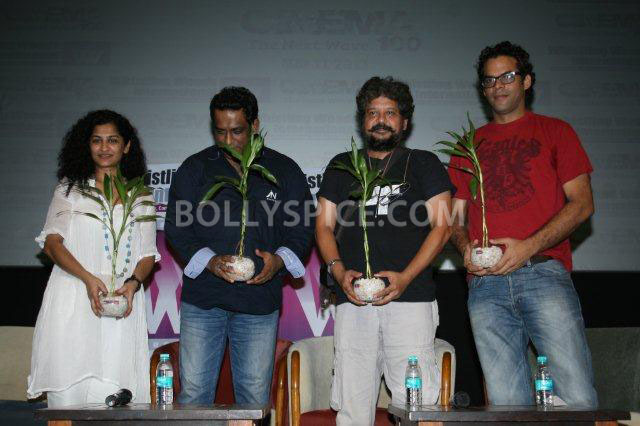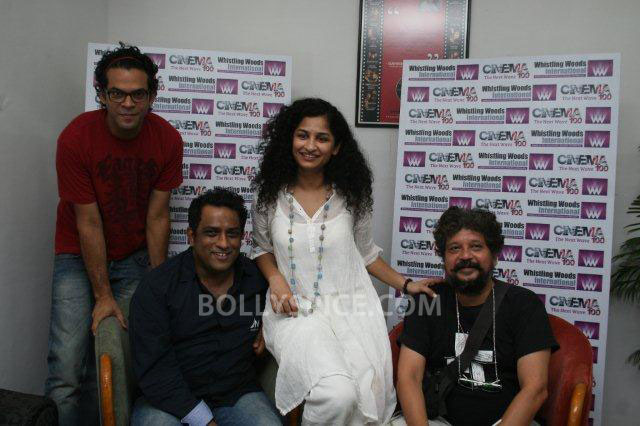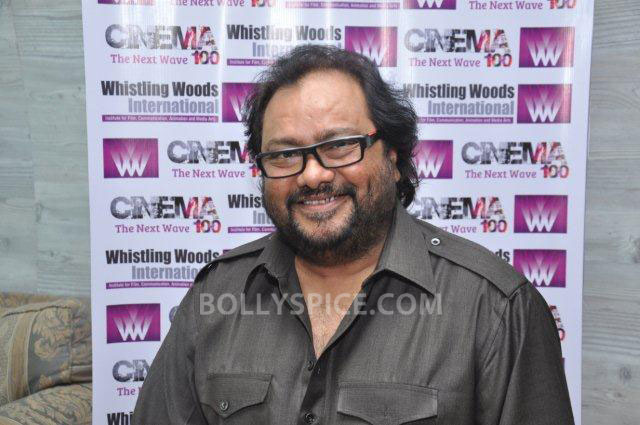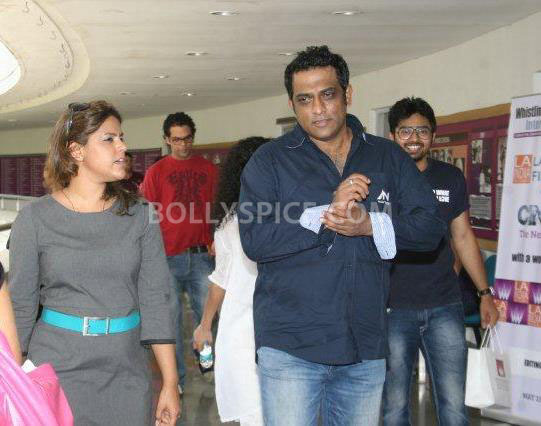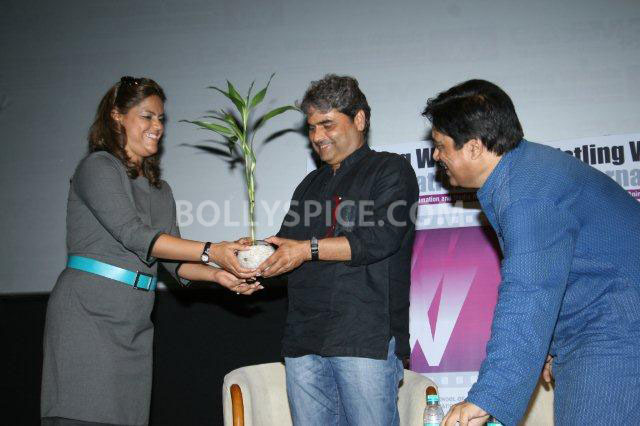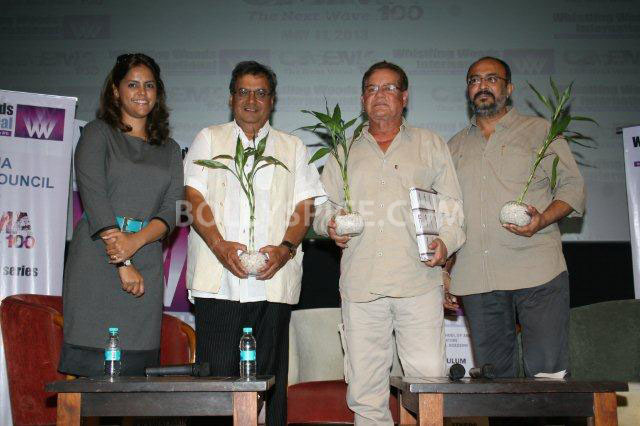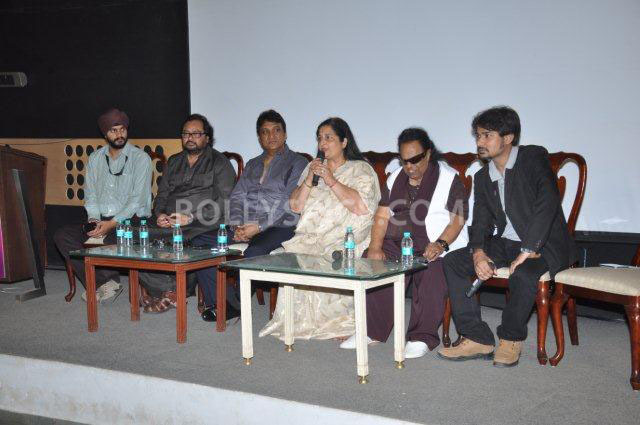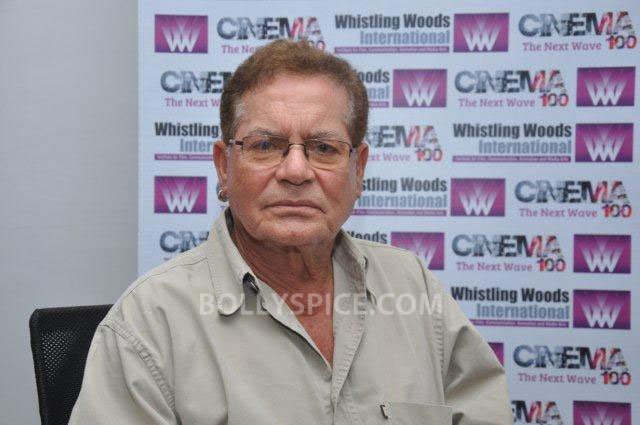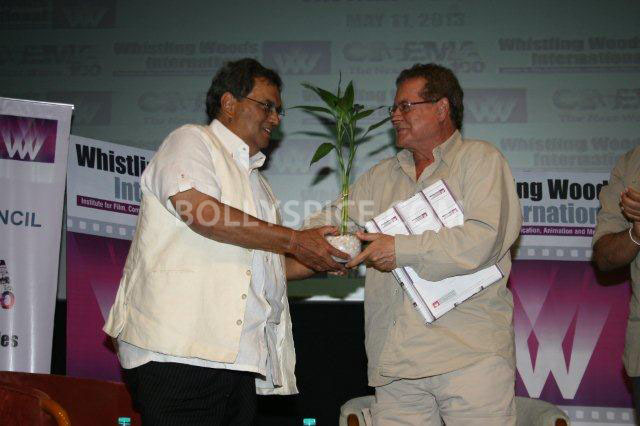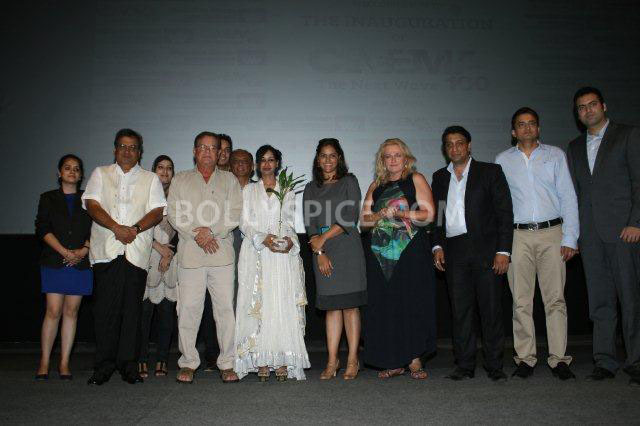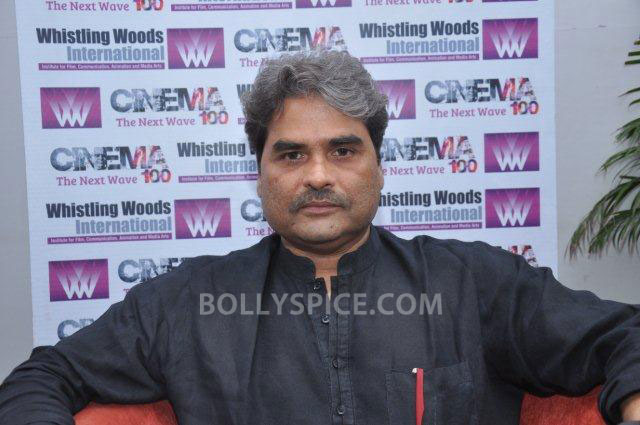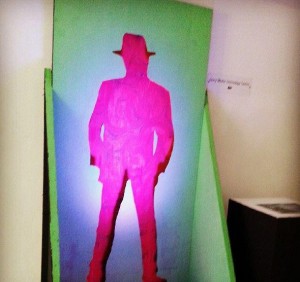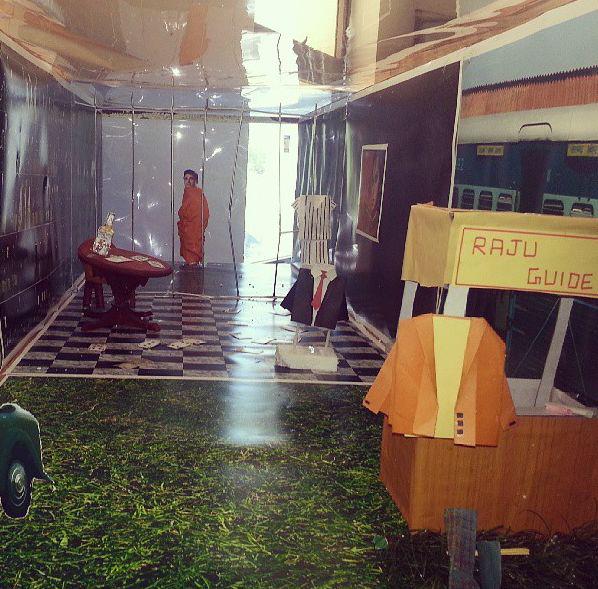 In its 2nd year, Cinema 100 – the annual celebration of films, organized by Whistling Woods International commenced today in Mumbai amidst high excitement and participation.
In its 2nd year, Cinema 100 – the annual celebration of films, organized by Whistling Woods International commenced today in Mumbai amidst high excitement and participation.
The day commenced with an engaging discussion on the ‘screenwriting panel’ between Subhash Ghai, Salim Khan and Anjum Rajabali on the perks or drawbacks and the role of screenwriters in the industry. With a brief summarization of the evolution of screenwriters in the industry and a mention of the recent Film Writers’ Movement, this rapid-fire panel discussion left the audience enthralled, who were fascinated to learn about the inner workings of the screenwriting industry. The session also entailed a discussion of the elements crucial in creating a good script.
Salim Khan shared with the audience his humble beginning in the industry. ‘The most important thing I’ve learnt is that you need to do a self-assessment. You need to know your weaknesses and finer points. Another essential trait to cultivate is a love for reading. Without reading, every script you create will fall flat, every character dull.’ When questioned on the need for newer, original scripts in the industry, Subhash Ghai replied “Every film being created is a remake of another film in another time in another place. No idea is new. Originality does not exist in reality – we are all influences of our surroundings. Only a fool could be truly original.”
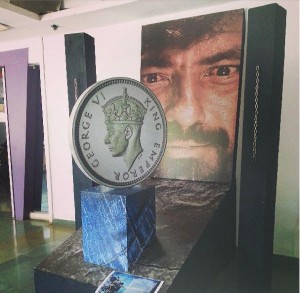 One of the popular sessions of the day was the Blockbuster Directors’ panel comprising of filmmakers Gauri Shinde, Anurag Basu, Amole Gupte and Vikramaditya Motwane who reflected on the future of Indian cinema at Cinema 100. In a rapid-fire session moderated by well-known film critic, Mayank Shekhar, the filmmakers shared the dais talking candidly about industry trade secrets and on iconic films that changed the way Indian films are made. They enthralled audiences with amusing anecdotes about their industry beginnings and commented on how cinema is bound to change in the next 100 years. Speaking about the role of filmmakers, English Vinglish director Gauri Shinde said, “Directors make films to tell stories. Stories that they just have to share with the rest of the world. That won’t change in the future. Formats may change: from black and white to color to 3D; platforms to watch films may change but the basic need for good stories within films will not change. People will always want to hear stories.” Echoing her sentiments Anurag Basu added, “With technology constantly evolving, directors’ need to always stay one step ahead. They need to anticipate the latest technology, to be ready for it. This gives them the potential to create a different story, to be able to tell the story the way they see it.” “In the future, the way people watch films may change. Earlier people used to watch films together. With the new technology, we can watch films from the luxury of our own home. The experience of sitting in a darkened cinema may be lost in the future”, commented Amole Gupte, while Vikramaditya Motwane confessed, “Indian Cinema will continue to evolve but one fact remains the same. People will go to see a film because they want to watch a great performance. For example people watched English Vinglish for Sridevi’s exceptional performance or Barfi for Ranbir’s and Priyanka’s performances.”
One of the popular sessions of the day was the Blockbuster Directors’ panel comprising of filmmakers Gauri Shinde, Anurag Basu, Amole Gupte and Vikramaditya Motwane who reflected on the future of Indian cinema at Cinema 100. In a rapid-fire session moderated by well-known film critic, Mayank Shekhar, the filmmakers shared the dais talking candidly about industry trade secrets and on iconic films that changed the way Indian films are made. They enthralled audiences with amusing anecdotes about their industry beginnings and commented on how cinema is bound to change in the next 100 years. Speaking about the role of filmmakers, English Vinglish director Gauri Shinde said, “Directors make films to tell stories. Stories that they just have to share with the rest of the world. That won’t change in the future. Formats may change: from black and white to color to 3D; platforms to watch films may change but the basic need for good stories within films will not change. People will always want to hear stories.” Echoing her sentiments Anurag Basu added, “With technology constantly evolving, directors’ need to always stay one step ahead. They need to anticipate the latest technology, to be ready for it. This gives them the potential to create a different story, to be able to tell the story the way they see it.” “In the future, the way people watch films may change. Earlier people used to watch films together. With the new technology, we can watch films from the luxury of our own home. The experience of sitting in a darkened cinema may be lost in the future”, commented Amole Gupte, while Vikramaditya Motwane confessed, “Indian Cinema will continue to evolve but one fact remains the same. People will go to see a film because they want to watch a great performance. For example people watched English Vinglish for Sridevi’s exceptional performance or Barfi for Ranbir’s and Priyanka’s performances.”
 The next session featuring stalwarts on the music panel had Ravindra Jain, Anuradha Paudwal, Sameer Sen and Ismail Darbar discuss the changing faces of music down the ages of Indian cinema. The panelists spoke about how integral music to any film and how through its meaning and flavor, a film comes alive. Anuradha Paudwal, reminiscing about the yesteryears of the Indian music fraternity said, “It is wonderful to see how the older filmy hits are still very popular among today’s youth, it clearly shows the impact these songs had over generations and I believe they will continue to remain in the hearts of many others for generations to come”. She added, “My seniors played a very important role in moulding me and teaching me the finer skills I required to build my career and I’m very grateful for their time, effort and patience that helped me come a long way”. Ravindra Jain enticed the audience with unforgettable lyrics from some of the films of his time. He emphasized that, “The music is what makes a film distinctive. Many a time, without music a film loses its essence – it is the music that gives a film its notoriety.” Sameer Sen reminded the audience of all the hard work that went into making a song, he said, “Sometimes it took months to make a song, there were sequences that went on for days to get the perfect look and feel. It was this effort and talent that has made some songs unforgettable”. Sameer also thanked his mentors for the role they played in guiding him and making him the person he is today. The discussion ended with the panelists sharing their views on what can be expected during the next 100 years of Indian cinema.
The next session featuring stalwarts on the music panel had Ravindra Jain, Anuradha Paudwal, Sameer Sen and Ismail Darbar discuss the changing faces of music down the ages of Indian cinema. The panelists spoke about how integral music to any film and how through its meaning and flavor, a film comes alive. Anuradha Paudwal, reminiscing about the yesteryears of the Indian music fraternity said, “It is wonderful to see how the older filmy hits are still very popular among today’s youth, it clearly shows the impact these songs had over generations and I believe they will continue to remain in the hearts of many others for generations to come”. She added, “My seniors played a very important role in moulding me and teaching me the finer skills I required to build my career and I’m very grateful for their time, effort and patience that helped me come a long way”. Ravindra Jain enticed the audience with unforgettable lyrics from some of the films of his time. He emphasized that, “The music is what makes a film distinctive. Many a time, without music a film loses its essence – it is the music that gives a film its notoriety.” Sameer Sen reminded the audience of all the hard work that went into making a song, he said, “Sometimes it took months to make a song, there were sequences that went on for days to get the perfect look and feel. It was this effort and talent that has made some songs unforgettable”. Sameer also thanked his mentors for the role they played in guiding him and making him the person he is today. The discussion ended with the panelists sharing their views on what can be expected during the next 100 years of Indian cinema.
 Another highlight of the day was an exclusive Master Class with Vishal Bhardwaj, renowned director, who spoke on his multifaceted journey through the film industry, from sports to music to filmmaking. He spoke of Manmohan Desai’s and Gulzar’s influence in his work. He also stressed on the importance of culture is creating a good film. Engaging the audience, he listed the milestones in Indian cinema that made him proud to be part of such a fraternity. “Bandit Queen was the last milestone of Indian Cinema. Mera Naam Joker would have changed trends in Indian Cinema, if it had been successful.” he stated.
Another highlight of the day was an exclusive Master Class with Vishal Bhardwaj, renowned director, who spoke on his multifaceted journey through the film industry, from sports to music to filmmaking. He spoke of Manmohan Desai’s and Gulzar’s influence in his work. He also stressed on the importance of culture is creating a good film. Engaging the audience, he listed the milestones in Indian cinema that made him proud to be part of such a fraternity. “Bandit Queen was the last milestone of Indian Cinema. Mera Naam Joker would have changed trends in Indian Cinema, if it had been successful.” he stated.
In an enlightening session, Amrit Gangar, Film Historian spoke about the evolution of the Indian film industry over the past 100 years with an exclusive screening of his film, 100 years of Fortitude. He spoke of the strength of the Indian film industry and its potential to be the biggest film industry in the world. “The resilience of the Indian film industry cannot be measured. In the past 100 years, it has established a global foothold that rivals even Hollywood. In the past, Hollywood has overshadowed European cinema and other global cinema but the Indian film industry remains strong. During the recent economic slowdown, the Indian film industry witnessed a strong 7% growth.” said Amrit Gangar.
In addition to the informative, educative panel discussions and conversation with some of the leaders in the industry, the event also featured special screenings of Sholay 3D, Harishchandrachi Factory, Raja Harishchandra and Bombay Talkies alongwith multiple workshops on editing, acting, filmmaking, VFX, piracy among many more.
